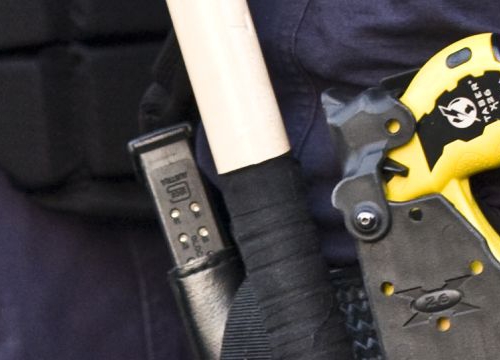Launch: United Nations Human Rights Guidance on Less Lethal Weapons
Event


Tony Webster
You are cordially invited by the Office of the United Nations (UN) High Commissioner for Human Rights (OHCHR), in collaboration with the Geneva Academy of International Humanitarian Law and Human Rights, the Centre for Human Rights (University of Pretoria) and the Permanent Mission of Switzerland to the UN in Geneva to the launch of the United Nations Human Rights Guidance on Less Lethal Weapons in Law Enforcement.
This Guidance, issued by OHCHR, is the outcome of research and broad consultations carried out under the auspices of the Geneva Academy and the University of Pretoria.
A group of experts – academics, representatives of UN agencies and other international organizations, UN special procedures mandate-holders, members of UN treaty bodies, law enforcement officials, experts in police oversight, and representatives of NGOs, civil society and manufacturers – helped to draft the Guidance, in collaboration with the OHCHR. Expert meetings were held in Cambridge, Geneva, and Pretoria.
The Guidance is designed to build upon existing standards such as the UN Basic Principles on the Use of Force and Firearms by Law Enforcement Officials.
Welcome and Moderation
- Mona Rishmawi, Chief, Rule of Law, Equality and Non-Discrimination Branch, OHCHR
Introduction
- Felix Kirchmeier, Manager of Policy Studies, Geneva Academy and Executive Director, Geneva Human Rights Platform
Panelists
- Christof Heyns, Professor, University of Pretoria, member, UN Human Rights Committee and Convenor of the expert group who drafted the Guidance
- Andrés Pérez, Human Rights Officer, OHCHR
- Neil Corney, Research Associate, Omega Research Foundation
- Barbara Fontana, Counselor, Head of Human Rights Section, Permanent Mission of Switzerland to the UN in Geneva
- Stuart Maslen, Honorary Professor, University of Pretoria
- Beryl Orao, Kenya National Human Rights Commission
Lunch
A light lunch will be served at the foyer of Palais Wilson from 12:30







